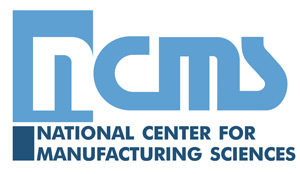Sources Sought: Additive Manufacturing of Lightweight Ground Fleet Military Vehicle Armor
NCMS is assisting the U.S. Army in seeking an industry partner(s) with the technology to design and develop a cost-effective additive manufacturing process to lightweight ground fleet military vehicle armor.
Problem
- Vehicle armor allocates protection and increased weight on many ground fleet military operating vehicles.
- This significant weight leads to increased maintenance and sustainment costs.
- Additive manufactured armors are costly, have long lead times, and high material waste.
- There are no known cost-effective methods through additive manufacturing to lightweight vehicle armor.
Solution
A weight reduction solution to current bolt-on up-armored kits for U.S. Army ground vehicles. While many traditional up-armored kits are traditionally manufactured Rolled Homogeneous Armor (RHA), this solution should involve cost-effective Advanced and Additive Manufacturing.
Desired Capabilities
- Reduction in the add-on up-armored kit weight with a threshold of maintaining vehicle survivability and an objective of increasing survivability. The desired threshold is a weight reduction of 15% for the armor kit and an objective of 25% weight reduction for the armor kit.
- A study of the production costs, waste, and lead times with a threshold of maintaining standards set by currently used traditional manufacturing, and an objective to reduce these items.
- Ability to demo – Production of test coupons/specimen for concept validation.
- Perform a Producibility, Quality, and Manufacturing (PQM) assessment for the proposed solution. This PQM assessment shall address and align with the criteria defined in the Defense Acquisition University’s Systems Engineering Brainbook found online.
Responses
Interested parties should complete the following form:
Background of capability development
- Examples of where the capability is currently being used (if any)
- A corporate presentation including engineering, manufacturing, and testing capabilities
- Cost Summary Form
Submissions must be completed before May 7, 2021. All questions or concerns can be addressed to opportunities@ncms.org
The submission period has closed.
Disclaimer and other Legal Information
Responding to a Sources Sought, RFI or Survey does not guarantee that a CTMA Program Initiative will result. By submitting a response, you are agreeing to allow NCMS to share your information with the United States Government. All submissions containing proprietary information shall be marked accordingly.
Under the CTMA Program, the parties shall limit participation on the project to (1) U.S. citizens, (2) lawful permanent residents as defined by 8 U.S.C. 1101(a)(20), (3) other protected individuals as defined by 8 U.S.C. 1324b(a)(3) and (4) Canadian citizens (pursuant to the principles underlying the Canada-U.S. Free Trade Agreement), if such participation will involve visual inspection of the Technology, Intellectual Property or Technical Information, or oral exchanges of information about the foregoing. We also require the project participants to furnish NCMS, upon request, with proof of the citizenship status of its personnel participating on the project, including (1) U.S. citizens; (2) legal permanent residents; and (3) foreign nationals who are not permanent residents. In instances where it is necessary to involve foreign national employees in the visual inspection of the Technology, Intellectual Property, or Technical Information, or oral exchanges of information about the foregoing, the parties will be required to furnish to NCMS proof of appropriate valid export license, or technical assistance agreement, or exemption from licensing requirements (e.g. Canadian exemption) to the extent required by the International Traffic In Arms Regulations (“ITAR”) or the Export Administration Regulations (“EAR”). A copy of such license or agreement shall be furnished to NCMS before any disclosure of information to such foreign person. In the event a party believes that the subject matter of the project agreement is not covered by ITAR, that party may request a written waiver of the requirements of foreign national provision in the CTMA Agreement, which may be granted if the NCMS contracting officer agrees that ITAR does not cover the subject matter.
These requirements also apply to individuals who have dual citizenship status.
